What Is Serotonin, What Does It Do, and Where Is It Found?
by Shelby Burns, MS, RDN/LDN

Serotonin, one of the most important signaling molecules within the gut, is derived from the amino acid tryptophan. It plays a pivotal role in initiating digestion and is crucial for normal functionality of the central nervous system because it sends messages between nerve cells.1 Furthermore, it contributes to our overall mood and ability to fall asleep. Because serotonin is involved in a wide variety of bodily functions, it is helpful to understand the difference between serotonin in the gut versus what some may call “brain serotonin.”
Types of Serotonin
Brain Serotonin
Brain serotonin is a neurotransmitter that is responsible for mood, behavior, and sleep. When brain serotonin is below optimal levels, one can feel depressed and even struggle with poor memory and sleep.2 That is because serotonin, synthesized in the neurons and pineal gland in the brain, is a precursor for the pineal hormone melatonin, which promotes sleep. Alternatively, when serotonin is above optimal levels, one may experience rapid heartbeat, agitation, or twitching muscles.3 Brain-derived serotonin, accounts for roughly 5% of total body serotonin, whereas 90–95% of serotonin originates in the gut.4
Peripheral Serotonin
Peripheral serotonin, also known as gut-derived serotonin that is stored in the blood platelets, plays a different but still important role, especially in digestion.5 Excessive peripheral serotonin can lead to GI distress, such as diarrhea, and too little peripheral serotonin can lead to constipation. Because serotonin cannot cross the blood-brain barrier, peripheral serotonin functions independently from brain serotonin. However, neural pathways help to connect the brain and the stomach, so serotonin in the gut can send messages to the brain. These messages may include feelings of fear, happiness, and anxiety, and sensations such as pain or nausea.
The vagus nerve is one of the pathways that run from the brainstem to the abdomen. It is a prominent mediator in the gut-brain communication “highway,” helping to send messages between the gut and the brain. Serotonin released from the gut helps to stimulate the vagus nerve. It is speculated that this stimulation may affect feelings of hunger because the vagus nerve is involved in decreasing food intake and it influences regions of the brain that are responsible for controlling appetite.6 However, the function of peripheral serotonin in regulating food intake, nutrient absorption, storage, and utilization continues to be explored.
Test and Support Gut Serotonin
If Ixcela results indicate that serotonin levels are not optimal, specific recommendations, such as including more omega-3 fatty acids and tryptophan-rich foods, are triggered to support serotonin levels. The Ixcela Balance* supplement may also be recommended. Ixcela Balance directly supports serotonin because it contains 5-hydroxytryptophan (5-HTP), an amino acid that converts to serotonin both in the gut and in the brain. Normally, in the body, 5-HTP is converted from tryptophan and is able to cross the blood-brain barrier.
SSRIs and Serotonin
There is still more to learn about serotonin and the gut microbiome’s job in serotonin production. Although serotonin levels in the gut can be measured through blood sampling, serotonin levels in the brain cannot be measured. Therefore, while many treatments for depression focus on boosting serotonin in the brain, there is no way to know the exact concentration.
Selective serotonin reuptake inhibitors (SSRIs) are commonly prescribed antidepressants. SSRIs block the reabsorption (reuptake) of serotonin, leading to greater levels of serotonin in the brain. Because 5-HTP does cross the blood-brain barrier, it could lead to even higher serotonin levels. That is why we advise all Ixcela clients to check with their primary care providers prior to taking Ixcela Balance. Due to decreased reabsorption, serotonin production and storage decrease both peripherally and in the brain.7 Therefore, when serotonin is measured in the blood of someone who takes an SSRI, below-optimal levels may be found. Ixcela recommendations are then geared toward still supporting serotonin and gut function, while recognizing that there may be limitations if an individual is taking SSRIs.
Complex and Mighty
We do not yet fully understand how additional serotonin in the brain impacts peripheral serotonin. Serotonin is a complex and multifaceted hormone, and if serotonin levels aren’t in balance, our mental, physical, and emotional health may suffer. This essential neurotransmitter is one of the key metabolites Ixcela tests because it can assist with sleep, digestion, mood, and bone health. It can also affect appetite and insulin sensitivity, along with energy intake and expenditure.8,9 Certain recommendations may need to be adjusted to suit individual needs, but implementing personalized Ixcela mindfulness, nutrition, and lifestyle recommendations is necessary for supporting serotonin levels and improving mood, sleep quality, and digestive health.
*Note: If you are taking antidepressants, specifically selective serotonin reuptake inhibitors (SSRIs), you may need to abstain from taking 5-HTP supplements like Ixcela Balance. Please consult your physician before taking this supplement.
References
- Bornstein, Joel C. “Serotonin in the gut: what does it do?” Frontiers in neuroscience vol. 6 16. 6 Feb. 2012, doi:10.3389/fnins.2012.00016
- Jenkins, Trisha A., et al. “Influence of Tryptophan and Serotonin on Mood and Cognition with a Possible Role of the Gut-Brain Axis.” Nutrients vol. 8,1 56. 20 Jan. 2016, doi:10.3390/nu8010056
- Scotton, William J., et al. “Serotonin Syndrome: Pathophysiology, Clinical Features, Management, and Potential Future Directions.” International journal of tryptophan research: IJTR vol. 12 1178646919873925. 9 Sep. 2019, doi:10.1177/1178646919873925
- Berger, Miles, et al. “The expanded biology of serotonin.” Annual review of medicine vol. 60 (2009): 355-66. doi:10.1146/annurev.med.60.042307.110802
- El-Merahbi, Rabih, et al. “The roles of peripheral serotonin in metabolic homeostasis.” FEBS letters vol. 589,15 (2015): 1728-34. doi:10.1016/j.febslet.2015.05.054
- Breit, Sigrid, et al. “Vagus Nerve as Modulator of the Brain-Gut Axis in Psychiatric and Inflammatory Disorders.” Frontiers in psychiatry vol. 9 44. 13 Mar. 2018, doi:10.3389/fpsyt.2018.00044
- Anderson, George M. “Peripheral and central neurochemical effects of the selective serotonin reuptake inhibitors (SSRIs) in humans and nonhuman primates: assessing bioeffect and mechanisms of action.” International journal of developmental neuroscience: the official journal of the International Society for Developmental Neuroscience vol. 22,5-6 (2004): 397-404. doi:10.1016/j.ijdevneu.2004.06.006
- Kim H.J., Kim J.H., Noh S., Hur H.J., Sung M.J., Hwang J.T., Park J.H., Yang H.J., Kim M.S., Kwon D.Y., et al. Metabolomic analysis of livers and serum from high-fat diet induced obese mice. J. Proteome Res. 2011;10:722–731
- Oh, Chang-Myung, et al. “Regulation of systemic energy homeostasis by serotonin in adipose tissues.” Nature communications vol. 6 6794. 13 Apr. 2015, doi:10.1038/ncomms7794

